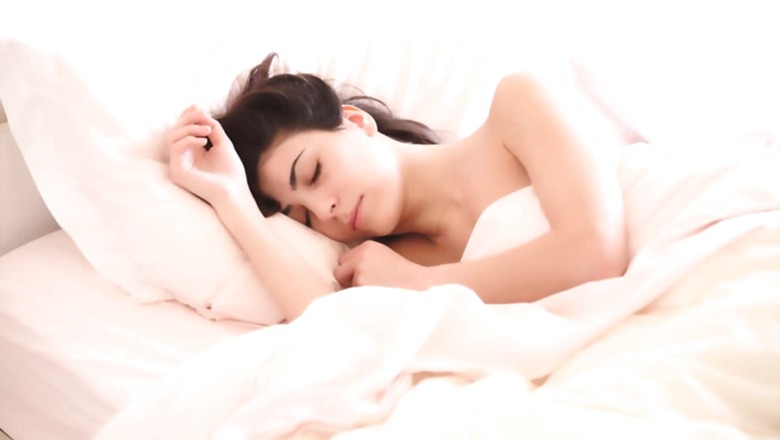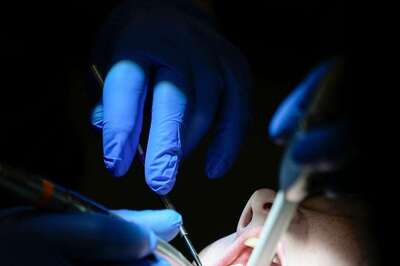
views
Most people have nightmares once in a while. They often occur when you are over-stressed or anxious. Research studies show that women are more prone to having nightmares compared to men and, according to the National Sleep Foundation, US, about 50% of adults have nightmares. The dreams are so realistic that they can leave you feeling even more anxious or shaken and in extreme cases, sleep-deprived.
Here are five possible reasons why you may be having nightmares:
1. Sleep deprivation
It’s a vicious cycle. Nightmares not only make you lose sleep but a poor sleep schedule may also make you prone to having frequent nightmares.
Experts say that if you skip on your sleep or have insomnia, you are likely to have vivid dreams and nightmares. Our sleep is divided into REM (rapid eye movement) and non-REM states. It is during the REM state that we dream the most. Sleep deprivation may deprive us of REM sleep and lead to a condition called REM rebound. In this condition, we tend to have longer REM sleep and more dreams/nightmares.
2. Stress and PTSD
Stress and anxiety are one of the most common causes of nightmares. Experts suggest that stress can cause hyperarousal, which, in turn, imbalances your sleep-wake cycle. So, if you are stressed about something before you go to bed, chances are you will have disturbed sleep and end up having bizarre dreams.
Additionally, those with PTSD (post-traumatic stress disorders) have nightmares more often than others. Such patients relive all their traumatic experiences in their sleep. If you have PTSD, talk to a doctor to help cope with the condition.
3. Medications
Certain medications like antidepressants, antihistamines and drugs that are used to control high blood pressure may cause nightmares. This is because all of these drugs interfere with the action of the neurotransmitter acetylcholine. Acetylcholine controls the duration of the REM sleep. Hence, these drugs could lead to REM rebound just like sleep deprivation would.
According to an article published in Psychology Today, dreams during REM sleep are usually nightmares.
4. Alcohol
If you had a lot of alcohol right before going to sleep, chances are you will end up having dreams and nightmares. This is because your body doesn’t let your brain dream before it has metabolised all the alcohol. Our body takes about an hour to metabolise one unit of alcohol. One unit of alcohol refers to about 10ml of alcohol in a drink. For example, a 440 mL beer with 5% alcohol by volume has about 2 units of alcohol.
Alcohol interferes with the function of another neurotransmitter involved in the maintenance of sleep cycles ? GABA. If you have had too much alcohol, you may go into REM rebound.
Interestingly, drugs that are used to treat alcohol withdrawal also have a similar action on GABA and thus lead to nightmares.
5. Late dinner
Having dinner close to bedtime, especially one rich in carbs and spices may kick up your metabolism and keep you from going into a deep sleep. As a result, you may end up having more dreams/nightmares than usual. The National Sleep Foundation suggests avoiding late-night snacking if you have nightmares often and having dinner earlier than usual.
A study conducted on over 1,800 Japanese people suggested that eating noodles right before sleep may cause poor sleep quality, though rice may not.
A study published in the journal Frontiers of Psychology suggested that it is an association between the person’s psychology and wellness and the reason for eating late at night that determines the kind of dreams they will have. Those who binge-eat, eat for emotional reasons and have higher coffee intake tend to have more bizarre dreams.
However, an article published on Harvard Health indicated that it might be waking up in the middle of a dream that makes you remember them so vividly instead of the food or diet habits.
For more information on sleep deprivation, read our article on Sleep chart by age and gender.
Health articles on News18 are written by myUpchar.com, India’s first and biggest resource for verified medical information. At myUpchar, researchers and journalists work with doctors to bring you information on all things health.


















Comments
0 comment